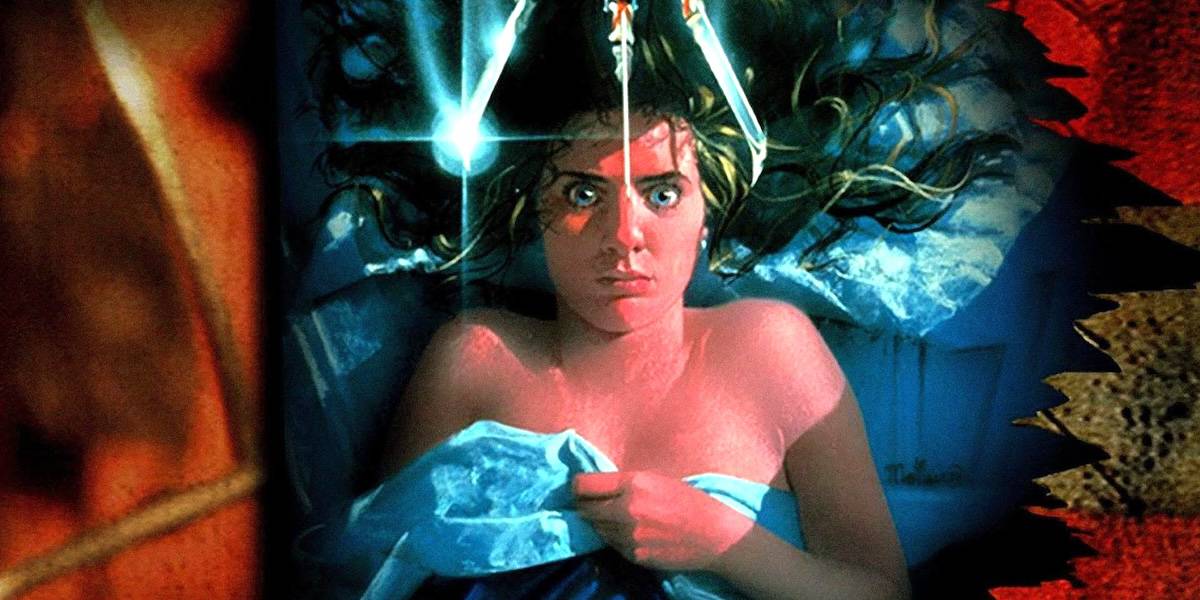The original A Nightmare on Elm Street was recently shown in 4K at a screening in Los Angeles our own Jimmy O attended.

In 1984, Wes Craven presented to the world an iconic villain, Freddy Krueger. The guy with knives for fingernails and a dirty red and green sweater. And he almost joined the ranks of Michael Myers and Jason Voorhees, and perhaps, now, may actually be the greatest slasher of all time. Since A Nightmare on Elm Street terrified audiences back then, it has spawned a legacy of sequels. Dream Warriors and Wes Craven’s New Nightmare are my favorites. Still, I have a soft spot for even the weakest entries. However, there’s nothing like the first installment, and seeing A Nightmare on Elm Street recently, with its new transfer (on a Friday the 13th, no less), was incredible. It brought my love of the original film back in the most maniacally mesmerizing ways!
Those in attendance included Charles Bernstein (Composer – Nightmare 1), Jack Sholder (Director – Nightmare 2), Dan Perri (Title Designer Nightmare 1,3,4), Steven Fierberg (Cinematographer – Nightmare 4), John Skipp (Nightmare 5), Rodd Matsui (Nightmare 6), Miko Hughes (New Nightmare), Zack Ward (Freddy vs. Jason), Mark Swift & Damian Shannon (Freddy vs. Jason) and Andrew Kasch (Director – Never Sleep Again doc). Seeing those who’ve worked on the franchise mingle with the dedicated fans in attendance was fantastic.
After the movie, there was a fun question-and-answer session with the guests of honor. Nostalgic Nebula‘s own Cody Chavez took on moderating duties. With that many people on stage simultaneously, you don’t get to focus on each. However, the colorful collection of filmmakers shared terrific stories about Freddy Krueger’s dark history.

A few of my favorite moments came from the legendary composer Charles Bernstein. He discussed the many films he’s scored, with only a handful being genre. Ironically, he’s known for his iconic spooky sounds. He also discussed his feelings now and how it was when he first witnessed the work in print.
“I didn’t know that when I got involved. I was thinking, I don’t think this movie’s going to see the light of day. It was a work print. It was black and white. A lot of scenes were just slugged in because they hadn’t done the visual effects. It was kind of a I honestly didn’t think it was a good idea.
I remember one scene in particular when I was thinking about it tonight. It’s that scene where the plastic tongue comes out of the phone. I was watching the black and white VHS at home. And I just remember when that tongue shot out, I got up and hit the pause button. And I just said, Charles, what are you doing? What is this?
It was one of those moments where I just was kind of baffled by the style. And yet, one of the beautiful things about Wes [Craven], he was a beautiful man, and I loved working with him. He knew how to put some humor in, the way Hitchcock could do that and some other great directors. And I realized there’s a lot of little touches, like when she says, you know, she looks, “Oh my God, I look 20,” or whatever, that there’s humor in there.”
The evening was a beautiful tribute to the stunning legacy created by the great Wes Craven. I’m still blown away by the power that this wild, scary, and funny classic still has. With Halloween just a month away, now is a good time to celebrate with the legends of horror and remember so very fondly the Nightmare that Wes built.

